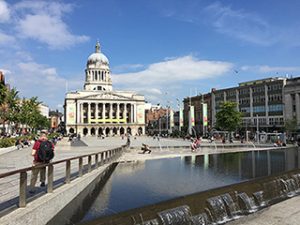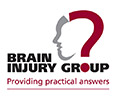Extending Legal Aid for Inquest Costs Rejected
For some families, an Inquest can be an important, yet inevitably very difficult, part of the grieving process following the death of a loved one. The purpose of an Inquest is to reach a conclusion regarding the circumstances of a person’s death and throughout the process the Coroner is guided by the evidence of key witnesses.

At Barratts we often receive instructions to provide legal assistance at Inquests on behalf of the bereaved families, to assist them through what can sometimes be a complex process. Legal representation also ensures that families are fairly represented and on an equal-footing with other parties (such as medical practitioners or local government organisations) who will have the financial and legal backing of the Hospital Trust or Local Authority.
Obtaining answers for the bereaved family is intended to be the focal point of the Inquest, but in circumstances where the level of trust has already been broken between the family and others involved, fairness and equality is of paramount importance. The prospect of a formal Inquest can be very daunting for those involved. Families need to be confident that they are asking the right questions of the witnesses and that they can understand the answers without being overwhelmed by medical and legal jargon. It is also important for families to be sure that the Coroner has been given all the relevant evidence from everyone involved, including themselves, to make an informed decision about the cause of death.
Whilst public bodies and other organisations will have the financial support to obtain a high level of legal representation, families often do not. The cost involved can be the deciding factor as to whether legal representation is obtained at all.
Like most injury lawyers, we were delighted when the Ministry of Justice indicated that they would look at the possibility of introducing public funding for families at Inquests where a State organisation is legally represented. Lawyers have long been campaigning for equality of arms between bereaved families and the State at Inquests.
Disappointingly, the Ministry of Justice announced last week that it would not introduce automatic public funding in Inquests where the State is represented. Instead funding will only be reserved for the ‘most serious cases’.
This decision has been met with an outcry of disappointment from bereaved families and those organisations which have campaigned on their behalf for further support. Those same concerns have been previously echoed in a 2017 government-commissioned report – which reviewed the experiences of families affected by the Hillsborough disaster – and highlighted a ‘pressing need’ for families to receive publicly funded legal representation.
Legal Aid is still available in certain circumstances for representation at Inquests but its availability is very limited. Our Clinical Negligence Partner Julie Hardy has obtained Legal Aid on behalf of two clients in recent years to provide representation at an Inquest concerning deaths occurring due to failures in medical care. Sadly we have had many other clients who have not been granted funding; this is despite the fact that they have lost family members in the most tragic of circumstances and the public purse has funded legal representation for the organisations which the family believe are responsible for the death.
The campaign for bereaved families will continue but in the meantime the Ministry of justice have lost an opportunity to redress the imbalance between families and Government organisations. See what the Law Society Gazette has to say on our Facebook page.
Click https://www.facebook.com/pg/BarrattsSolicitors/posts/?ref=page_internal
then use the search box on the right to look for “inquests” and you’ll be able to read the post from February.










